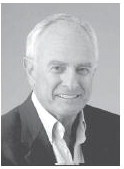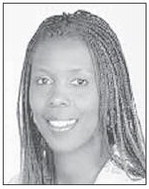Anniversary D-Day


Sunday, June 6, 2021, will be the 77th anniversary of the D-Day invasion when the Allies came ashore at Normandy in 1944. This was the beginning of the end of Nazi dominance of Europe and thwarted Adolph Hitler’s aim to dominate the world. As it is with so many out there, I never tire of another book, another documentary about the war in which far more innocent citizens were killed than soldiers on the battlefield.
Not sure, after a half dozen trips to Normandy, if I will find the time to return, but maybe there will be another opportunity. I’d like to again walk among the acres of white tombstones –Latin crosses and stars of David— where brave young men, many of them teenagers, rest in peace. Such an humbling experience. The attitudes of that time were far different from what we know today. The next war, which will likely be nuclear, will not be one in which citizen soldiers will be called on, driven by deep and abiding patriotism, to volunteer for flag and country.
This brings to mind the sobering view of former Secretary of State Dean Rusk who once said: “If there ever is an all-out nuclear war, there will not only be no answers, there won’t be any questions.” The first time seeing the American cemetery at Colleville-sur-mer came late in the day. I was tired from travel and was emotionally overwhelmed by the scene. Before getting to the cemetery, I had spent a couple of hours at a museum at Arromanches. There was a model of the port and a mockup of the invasion— very illuminating. All who visit the Normandy beaches, come away with the same exclamation: “How did they manage to get ashore.” A famous quote by Col. George Taylor explains how it happened. He told his men, “There are two kinds of people on the beach, those who are dead and those who are going to die. Let’s get the hell out of here.” And they did. A couple of days at Omaha beach brought about a pining for more. I began to meet World War II veterans, some arranged by author/ historian, Steven Ambrose. His book Pegasus Bridge, which was about the British unit that liberated the first French family of the war, was my introduction to the war’s captivating history. I became resolved to learn more.
Subsequent trips to Normandy brought about the opportunity to meet two daughters of that family, the Gondrees. When in London during Christmas holidays one year, I took a train down to a small village retirement home to meet Captain John Howard whose unit captured a bridge on the Orne River, which in WWII lore became the aforementioned Pegasus Bridge.
Howard’s men chose the winged horse Pegasus of Greek mythology, as their emblem and had patches made up for the uniforms which they wore for the invasion. The pilot of his glider, skillfully landed, was Jim Wallwork, who emigrated to Windsor, Canada. On a trip to Seattle, there was an opportunity to drive up to Windsor to spend an afternoon with him.
Then there were a number of U. S. veterans who were accommodating with interview requests, including a UGA graduate Lamar Wansley, who spent months with General Anthony McAuliffe, who replied “Nuts,” to the German commander who demanded that McAuliffe surrender at Bastogne. That became one of the most famous quotes of the war.
It was Captain Joseph Harper, who delivered McAuliffe’s reply to the German officer. One day he continued from page
stood erect in his basement in Roswell, where he lived out his life, surrounded by military memorabilia and proudly repeated the exact words he said to the officer who asked, “What ees nuts?” “I’ll tell you what it means,” Harper said. “It means, ‘go to hell,’ and if you don’t understand that, we are going to kill every (unprintable) German over here.”
There was a common theme among every one of the survivors of the war. They regretted that so many of their buddies were left behind. Often they would tear up when they reflected on their good fortune to have made it home and a close friend did not. “Why me?” they all said. “Why was my life spared and my friends taken?”
Visiting cemeteries across Europe and Punchbowl in Hawaii makes you feel proud of the Greatest Generation, but leaves you asking the question, “Why do men do such stupid things? Was there divine intervention in WWII since the Allies had to overcome such impossible odds?”
That makes me think of a dinner conversation in Budapest with the cousin of a good friend. “I do not believe in God,” she said. “How could a God allow six million people to be murdered?”






out of
Posted on